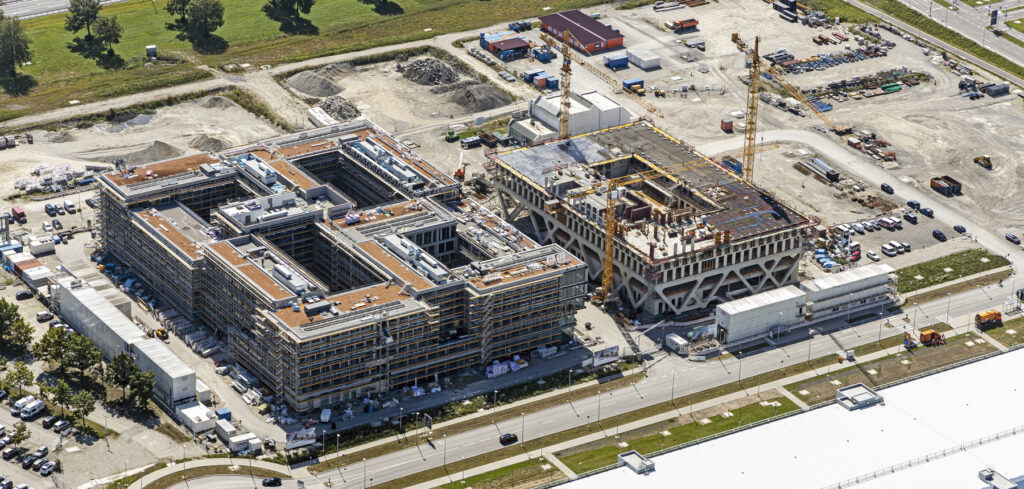Deutsche Flugsicherung (DFS), the company in charge of German air traffic control, has rented around 2,700m² of space in LAB 48 in Munich Airport’s interdisciplinary product R&D center, LabCampus.
The four-story office building that will house DFS will be ready for its new tenants from April 2022. Around 150 of the company’s administrative employees, who currently work at DFS’s existing premises at Munich Airport, are to move to LAB 48. With this relocation, DFS intends to examine how interdisciplinary communication with cross-departmental and -company mixed teams can be improved in changing projects.
The office’s overall layout is divided into smaller units that form a multi-faceted facade with large window fronts. While the top floors are intended for offices, the first floor is designed to serve as a networking and communication forum for all users of the building and their guests. Here, the lobby is in a glass-roofed inner courtyard, which includes showrooms and design studios for developing prototypes as well as food offerings.
Jost Lammers, CEO of Munich Airport, said, “After Argo AI – one of the world’s leading technology firms in the field of autonomous driving – DFS is the second renowned mobility company that will take up residence at LabCampus. We are delighted with DFS’s decision to make use of the opportunities created here. This sends an important signal to other potential users of LabCampus looking at mobility and transport or other significant issues for the future.”
Dr Marc Wagener, managing director of LabCampus, said, “Air traffic control is doubtlessly a most critical task with the highest of safety requirements and zero tolerance for error. We are certain that DFS will provide crucial impetus in the emerging innovation ecosystem and also benefit from this itself.”
Wolfgang Bretl, director of operations at Munich Airport, added, “DFS is constantly introducing innovations in its core business – now, we also want to offer innovative solutions for our employees’ offices that meet the transformed needs.”
Heiko Teper, head of DFS’s systems and infrastructure services, region south, said, “In the best sense, LabCampus is a test environment, where we can try things out and put them into practice. The lessons learned at LAB 48 are also to be applied to existing workspaces and planned new buildings.”
Oliver Vostri, head of DFS’s HR management, south, said, “The answers that DFS finds at LAB 48 will echo throughout the company. They could help to redefine the cooperation of the future and to shape it accordingly as a team.”

